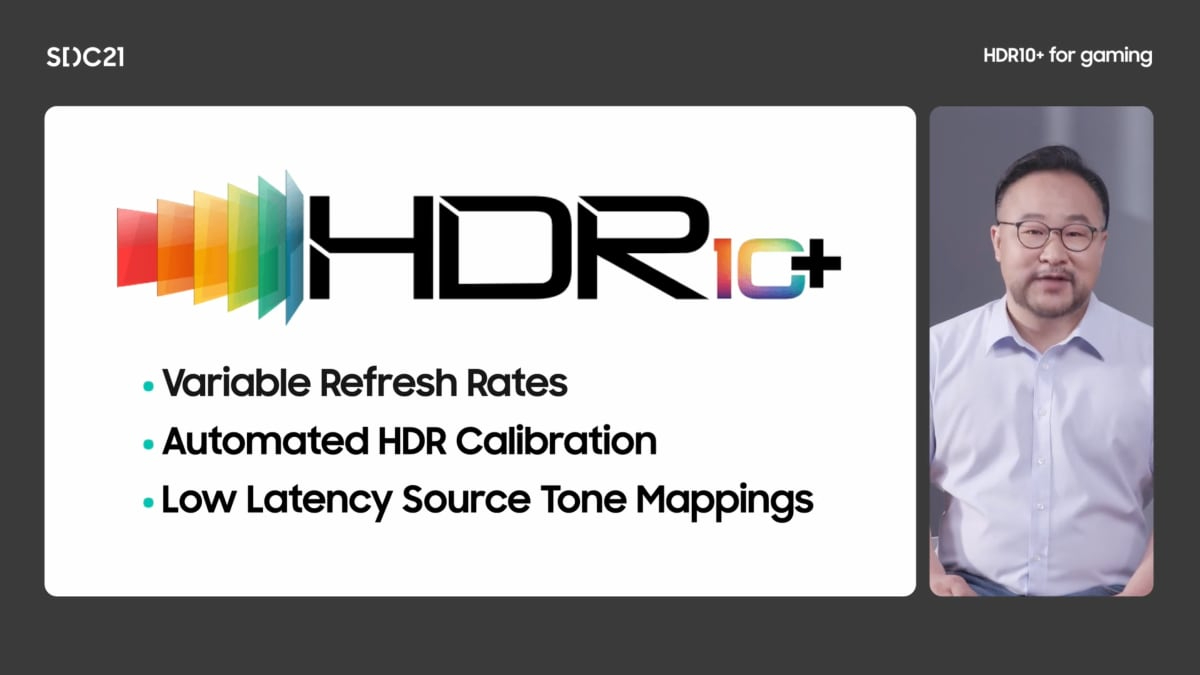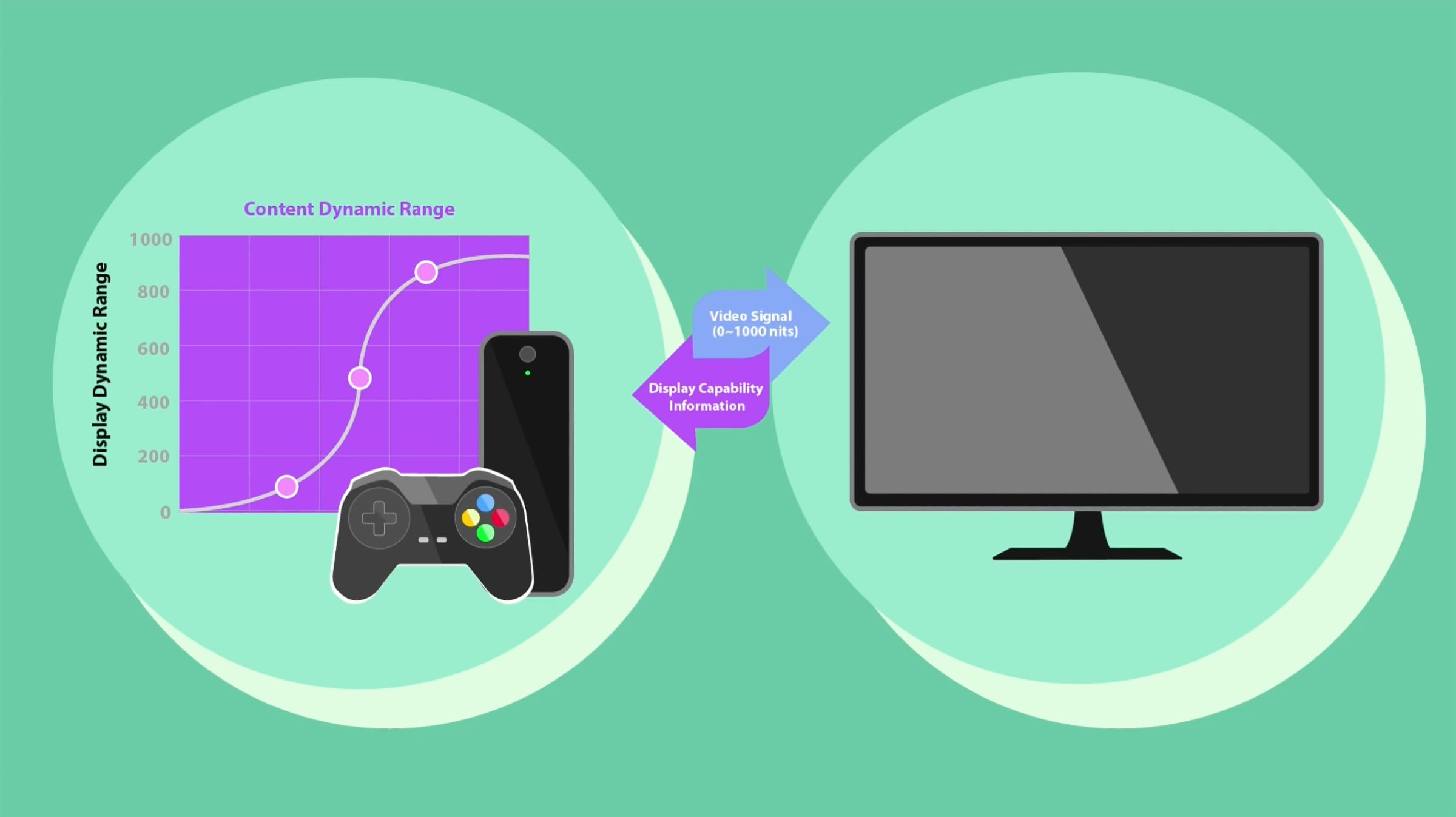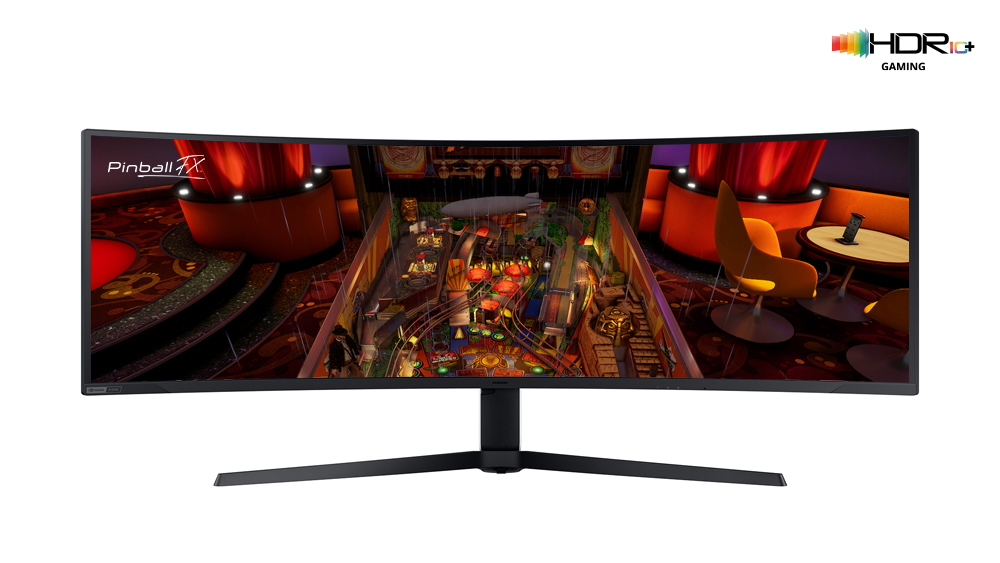Samsung Bringing HDR10+ Gaming Standard to Its TVs and Monitors
Look out Dolby Vision, here comes Samsung with HDR10+ Gaming.
Earlier this year at the Samsung Developer Conference 2021 (SDC21), Samsung announced its alternative to Dolby Vision: HDR10+ Gaming. Today, the company revealed that it would deliver a new family of televisions (4K and 8K) and gaming monitors that will fully support HDR10+ Gaming extensions. So, what exactly is HDR10+ Gaming?
According to Samsung, HDR10+ comprises three features aimed at enhancing your gaming experience: Variable Refresh Rate (VRR), Automated HDR Calibration, and Low-Latency Source Tone Mapping. Regarding VRR, HDR10+ Gaming supports up to 120 Hz refresh rates on PC and consoles. The Automated HDR calibration/color correction is pretty much self-explanatory. It involves a handshake between the display and a game being played to optimize the video based on its capabilities. Finally, Samsung eliminated the latency for the tone mapping process with both local- and cloud-based games.

If this sounds a lot like Dolby Vision to you, it’s for a good reason. Samsung wants to take away much of the manual configuration involved with getting the best picture quality from its displays, helping gamers to get into the action as quickly as possible. This is particularly pertinent to console gamers who likely don’t want to muck around with endless image quality settings to obtain an optimum picture with their fancy new 8K television.
“We are extremely proud to announce that the new HDR10+ Gaming standard will [allow] users to enjoy a game-changing experience through cutting-edge visuals and richer, life-like images,” said Seokwoo Yong, Executive VP and Head of the R&D Team for Samsung’s Visual Display Business. “Samsung will continue to invest in users’ viewing experiences as technology continues to advance and provide enhanced new features and capabilities.”

According to Samsung, HDR10+ Gaming will be incorporated in the 2022 editions of the Neo QLED and Q70 Smart TVs, along with its refreshed gaming monitors. The company also pointed out that Nvidia Ampere- and Turing-based GPUs will fully support HDR10+ Gaming via a future driver release. Support has not yet been announced for Radeon RDNA/RDNA 2 GPUs, though we imagine AMD will also jump on the bandwagon in 2022.

Game support is also trickling in, with Saber Interactive announcing HDR10+ Gaming support in Redout 2 and Pinball FX. Game Mechanic Studios also has supported titles incoming, although we haven’t seen any announcements yet for blockbuster AAA games. And that will be the big challenge with Samsung: getting support from gaming industry stalwarts. Dolby Vision already has incredible mindshare on the console gaming side with the Xbox Series X/S, with over 100 supported games.
There’s likely a much better chance for success on the PC gaming side, given that Nvidia has thrown its hat into the ring. But while Nvidia might support HDR10+ Gaming extensions with its drivers, it will be up to individual game developers to do the heavy lifting, baking support into their games.
Get Tom's Hardware's best news and in-depth reviews, straight to your inbox.

Brandon Hill is a senior editor at Tom's Hardware. He has written about PC and Mac tech since the late 1990s with bylines at AnandTech, DailyTech, and Hot Hardware. When he is not consuming copious amounts of tech news, he can be found enjoying the NC mountains or the beach with his wife and two sons.